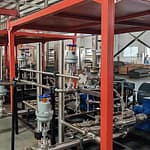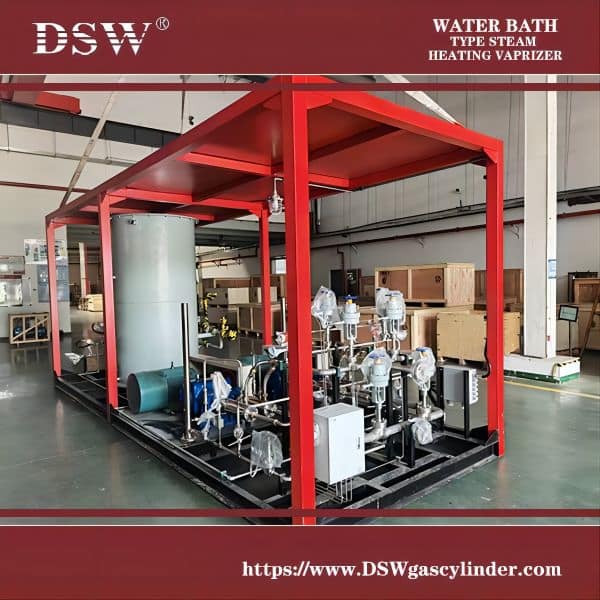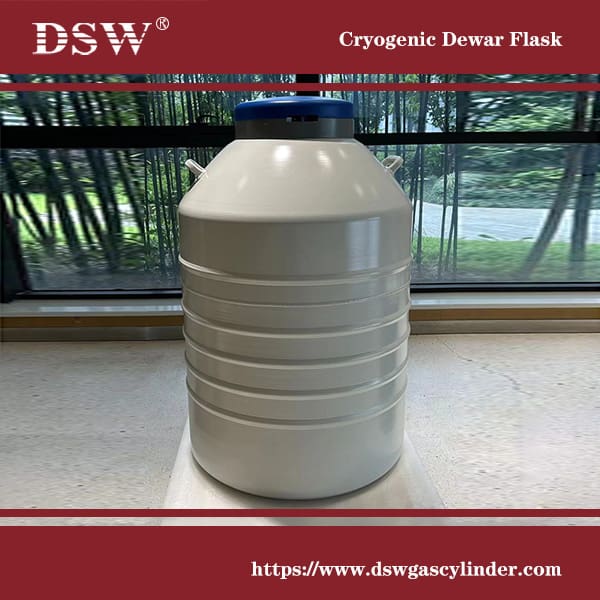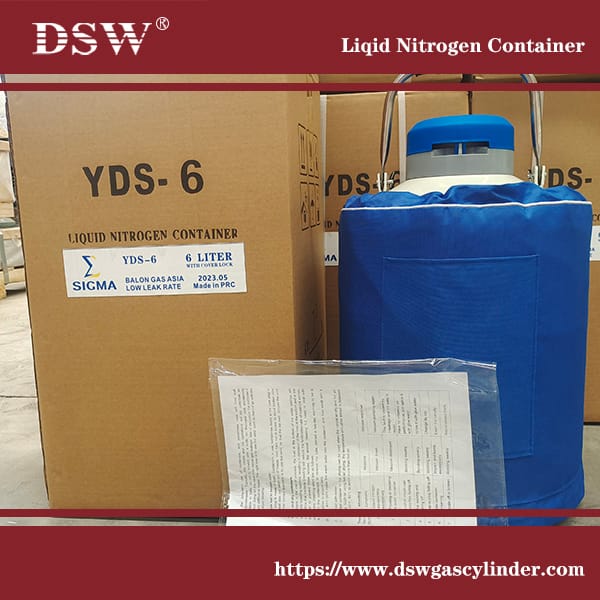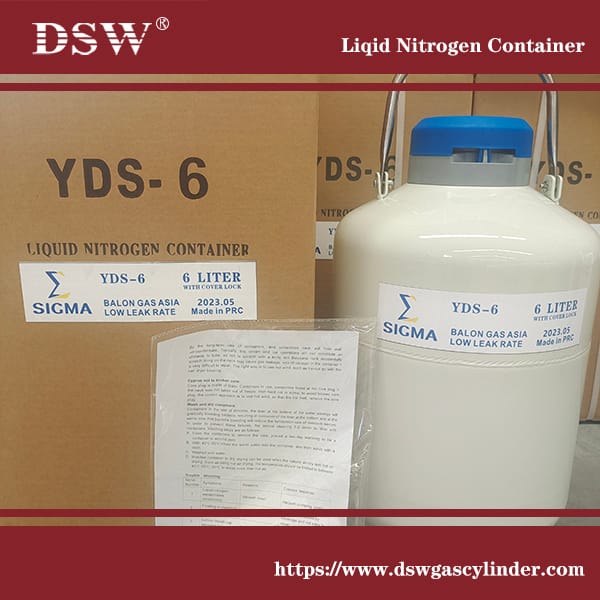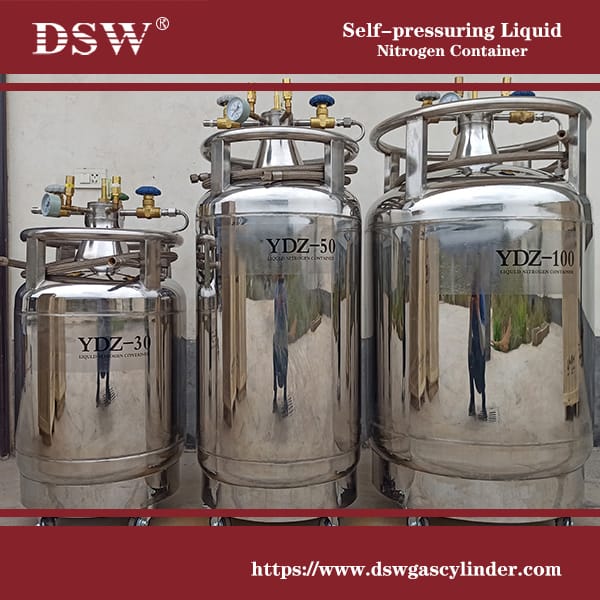Cryogenic Dewar Flask- dewar supplier
DSW cryogenic dewar Flasks are designed to safely store and transport liquid helium, argon, oxygen, nitrogen, hydrogen, and liquid natural gas (LNG) according to ASME, DOT, and TPED standards.
dewar flask for liquid nitrogen
Cryogenic dewar flasks are typically constructed with a double-walled design, with a vacuum-sealed space between the inner and outer walls. This vacuum acts as a thermal barrier, preventing heat from entering the flask and maintaining the low temperature inside. The inner wall is usually made of stainless steel or other materials with high thermal conductivity, while the outer wall provides structural support and additional insulation. The space between the fences is often evacuated to further reduce heat transfer through conduction and convection. Additionally, some dewar flasks incorporate reflective coatings on the inner surface to minimize radiant heat transfer.
Cryo Dewar Size Chart
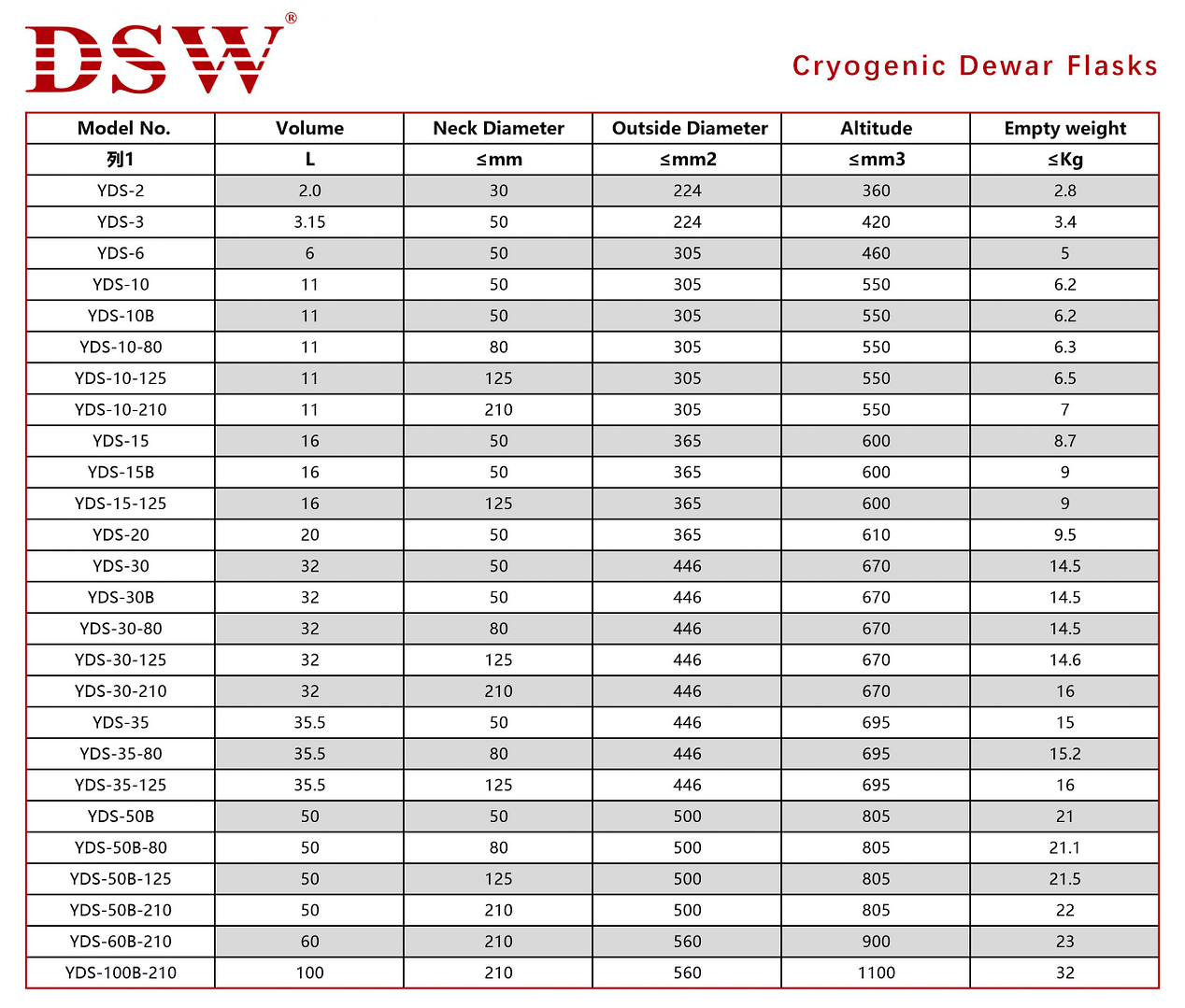
What is a cryogenic dewar?
Dewar vessels use vacuum space as an excellent insulator, preventing super-cold liquids from returning to gases. Liquid nitrogen typically “boils off” or changes from liquid to gas at temperatures around -320 degF (77K, -195.79 deg C). Liquid helium has even lower boiling points of 4 K or -269 degC.
Cryogenic Storage Dewar
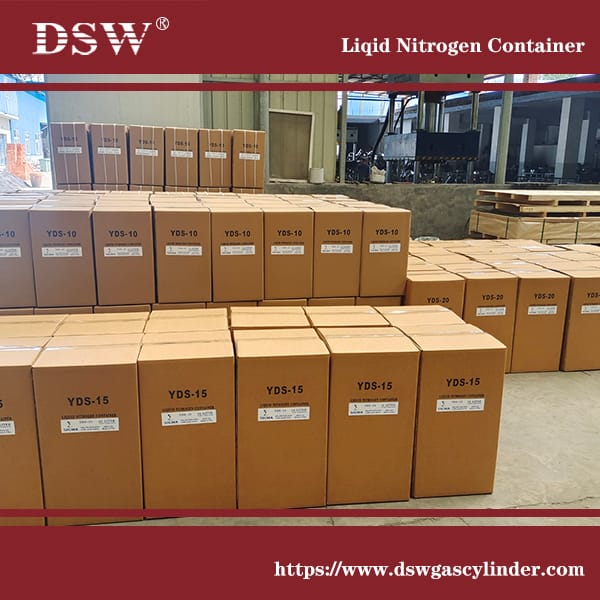
Cryopreservation of biological samples
Cryogenic dewars play a vital role in the cryopreservation of biological samples, such as cells, tissues, and genetic material. Cooling these samples to ultra-low temperatures reduces their metabolic activity, allowing for long-term storage and preservation. This is particularly crucial in stem cell research, tissue engineering, and genetic studies.
Dewar flasks provide a controlled and stable environment for storing these delicate samples, ensuring their viability and integrity. The exceptional insulation properties of the flasks minimize temperature fluctuations, preventing damage to the samples due to ice crystal formation or thermal shock. This allows researchers to maintain the quality of the samples over extended periods, facilitating future experiments and analysis.

